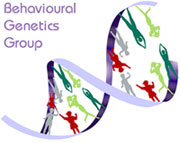The BGG works on one of the biggest questions in biology today: how do the genetic cards we are dealt at the moment of conception interact with our lifetime experiences, from womb to grave, to give rise to our unique behavioural profile and our risk of neuropsychiatric disorder? Until recently, the complexities of such gene-environment interactions seemed overwhelming but new methods and insights now mean this problem is becoming increasingly tractable.
Active (and often inter-linked) areas of research in the BGG include:
- Models of genetic risk factors for neuropsychiatric illness
- Understanding the role of genomic imprinting in the brain
- (Epi)genetic and endocrine mechanisms influencing sexually-dimorphic behaviour
- The role of the placenta in programming mother and/or offspring brain and behaviour
- How epigenetic change mediates the interaction between genetics and life experiences
- Molecular influences on postpartum behaviour and disorder risk
- Mental health, behaviour and comorbid medical conditions in congenital skin conditions
We work with colleagues in Cardiff, the UK and internationally, to develop our work and to translate our basic research findings into clinically-relevant areas.


